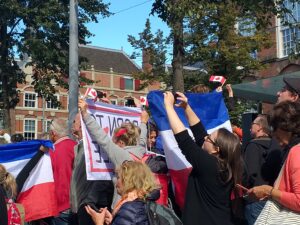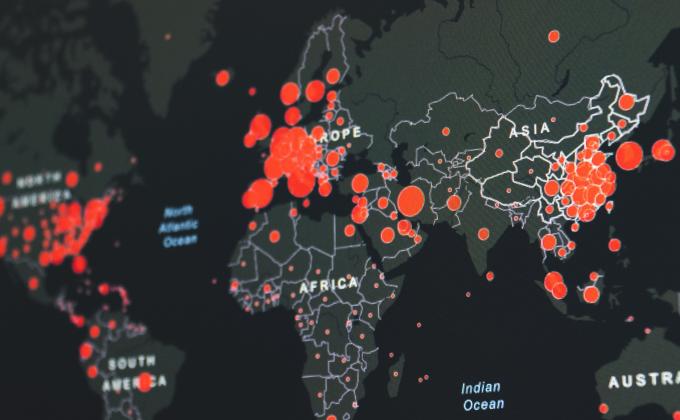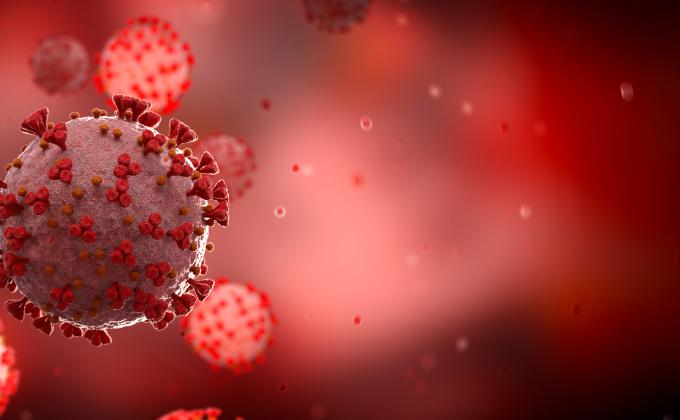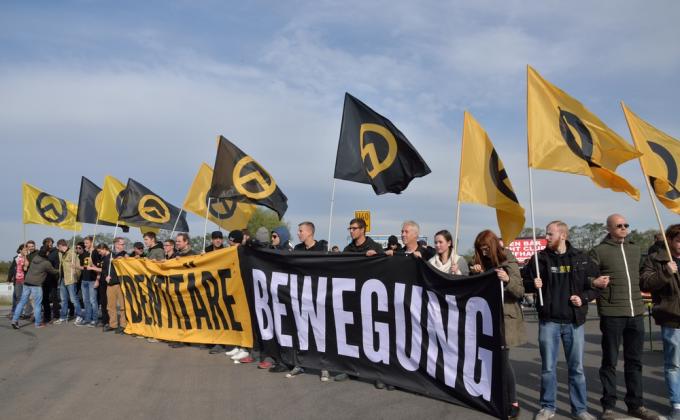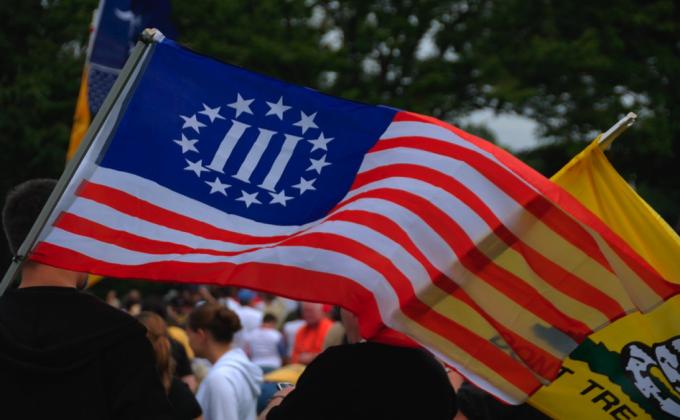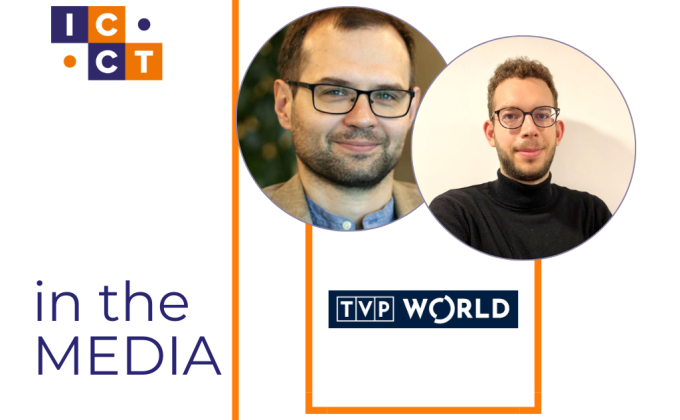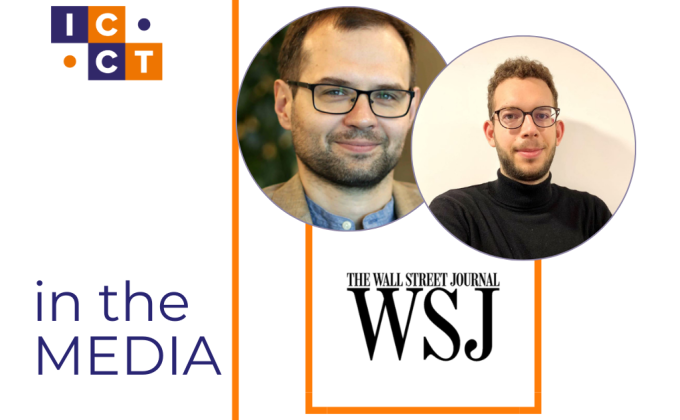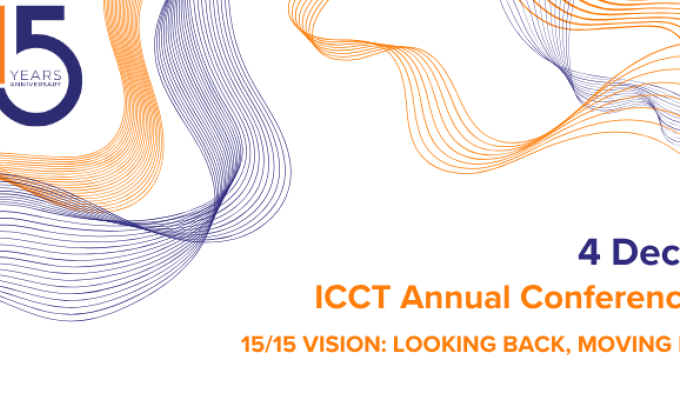On 20 September 2022 in The Hague, Prinsjesdag (Budget Day) was marked by a generally enthusiastic audience waving happily at the Dutch Royal Family as they paraded the streets of the city centre on carriages, as is the tradition. Amidst that enthusiasm, however, shouts against the monarchy and the Dutch government could also be heard. Anti-state sentiments intersected with anti-vax banners reading “Born to Be Free” and “#FreeHugs”, and also some discussing conspiracy theories about a secret global government embodied by the World Economic Forum. The individuals promoting these ideas were waving upside-down Dutch flags and wearing red handkerchiefs, both symbols of the Dutch Farmers’ Movement, which has contested state-sponsored environmental programmes affecting Dutch livestock farmers. Together with the anti-vax banners and upside-down Dutch flags, there were dozens of Canadian flags. Why?
The far-right has used protests in the Netherlands and in Canada, specifically the Dutch Farmers’ Movement and the Canadian Freedom Convoy, to capitalise on anti-government sentiments developed locally to promote the idea that there is a transnational far-right. This article argues that even though a connection between the Dutch and the Canadian protests did not exist at first, disinformation on the existence of a link based on a common threat spurred solidarity. The result has been the formation of a real form of transnationality uniting both movements – but one sustained by conspiracy theories fed with far-right narratives.
Photo: Budget Day (Prinsjesdag), The Hague (Image: Bàrbara Molas).
Dutch farmers and conspiracy theories
The Dutch farmers’ protests began as a series of demonstrations by Dutch livestock farmers in October 2019. The protests were a response to a government proposal to reduce the country’s nitrogen emissions by 30 percent by the year 2030 to limit agricultural pollution that would impact this industry. Quickly, however, the demonstrations became a hub for the intersectional mobilisation of citizens demanding less government regulations, and more freedom. Between 2019 and 2022, the ad hoc Dutch organisation Farmers Defence Force (FDF) organised protests throughout the Netherlands characterised by farmers and builders parking next to exits of major roads.
In the online space, public conversations about the farmers’ movement were first dominated by shared concerns regarding government environmental policies and the search for mainstream support through hashtags like #steundeboeren (support the farmers) and #zonderboerengeeneten (no farmers no food). Soon, the farmers’ comments received positive but also negative reactions, including environmentalists and other left-leaning audiences online reacting negatively to such grievances in favour of ecological protection. On platforms such as Twitter, polarisation was swiftly amplified, and language of resentment escalated to radical speech. Within days, tweets contained things like “war on the farmers”, with some users going as far as labelling the farmers “terrorists”. In just under a week, the conversations had turned into radical anti-government narratives fueled by disinformation. These narratives included claims that the government was not interested in cutting emissions but rather steal farmland to build houses for immigrants. Conspiracy theories around the World Economic Forum (the ‘WEF agenda’), the ‘Great Reset’, and the Great Replacement were dominant.
The capacity for the farmers’ grievances to transition into conspiratorial anti-government narratives would explain why the Dutch National Coordinator for Security and Counterterrorism (NCTV) included a statement on the farmers’ movement in its report on “terrorist threats” in the Netherlands. Their assessment was that while the protests themselves were generally peaceful, harmful actors were capitalising on them to contribute to existing social polarisation. In particular, the NCTV warned that the grievances of the farmers had been co-opted by conspiracy theorists and political extremists, just as they had co-opted demonstrations against government restrictions around COVID-19. For example, the Farmers’ Movement received the open support of the Dutch far-right political party Forum voor Democratie (Forum for Democracy, FvD), which was invited to speak at one of the demonstrations in 2020. Former FvD party member Eva Vlaardingerbroek even appeared in American television at the Tucker Carlson Today show to talk about the protests. In fact, she denied that a nitrogen crisis exists at all, which she said was an excuse for the Dutch government to follow their Great Reset plans over the Netherlands, a ‘Pilot Country’: “The Dutch farmers have had enough and are courageously fighting back against the Great Reset. They deserve your full support. They certainly have mine. It’s very simple: No farmers, no food.”
Originally, the Great Reset was the name of an initiative launched by the World Economic Forum (WEF) in June 2020, that reassessed the pandemic as an opportunity to create a more sustainable and equitable global economy. Quite quickly, however, the Great Reset became a conspiracy theory about a global elite (often controlled by ‘the Jews’) using COVID-19 to enforce radical change or a New World Order involving the establishment of one world government and against the will of ‘the people’. According to the Institute for Strategic Dialogue (ISD), between June 2020 and February 2021, there were at least 1,983 posts of Dutch online content around the Great Reset conspiracy theory on Facebook pages alone. In their study, ISD analysts found that posts on the Great Reset conspiracy theory were often connected to antisemitism and COVID-19 disinformation, and with other conspiracy theories such as the QAnon, which claims that former President Trump is fighting against a global secret network of ‘leftist’ pedophiles. In January 2021, the leader of FvD, Thierry Baudet, used Facebook to ask whether or not COVID-19 was being used as a “crowbar” for a “New World Order” as part of the “Great Reset”. In a short period of time, the post received almost 10,000 interactions.
Baudet also claimed that the Dutch government was trying to further a “post-identitarian” agenda in favour of a “Great Reset mass migration”. This was an indication that the far-right leader was merging the Great Reset conspiracy theory with Identitarianism, which asserts the right of European ethnic groups and white peoples to territories claimed to belong exclusively to them, and with the Great Replacement. The latter speaks of a liberal plan to gradually replace the European populations through mass migration from non-Western regions. Baudet is not the only one doing this. Besides introducing American viewers of Tucker Carlson’s show to the Dutch Great Reset ‘pilot project’, as she called it, Eva Vlaardingerbroek also explained that the Dutch government was stealing land from the farmers "under the guise" of a fabricated environmental crisis, but which was actually part of a “neo-Marxist” plot to transform the Dutch countryside into “mass housing for immigrants”. According to Vlaardingerbroek, “Western civilization … is dying [as] there is a coordinated attack on our identity, culture, to uproot Europeans from their sense of self.” It was, she said, “totalitarianism”.
Support for the Dutch farmer’s movement based on a conspiratorial understanding of world politics has not been constrained to the Netherlands. Former President Donald Trump, for example, spoke of the “climate tyranny of the Dutch government … which wants to dramatically cut Dutch farm production despite growing food shortages”. Specifically, in a speech to conservative young people in Tampa, Florida in July 2022, Trump claimed that climate change is a “hoax” and that attempts to protect the climate would lead to “famine and starvation.” He called the enemy of “our movement” a group of “climate fanatics” and the Dutch farmers a “peaceful” lot “bravely fighting for their freedom.” In France, far-right and populist politician Marine Le Pen shared her enthusiasm for the farmers’ protests on Twitter: “In a time when Dutch farmers are demonstrating against expropriation, as chairman of the Rassemblement National group in parliament, I want to show them my support". In Canada, far-right media outlet Rebel News started a petition called “Stop the War on Farmers!”. The petition described the Dutch governments’ plans to tackle climate change by implementing restrictions on livestock numbers and fertiliser as “a war on humanity … a genocidal ideology.” Rebel News accused the World Economic Forum (WEF) of starting a war that begun in the Netherlands but would allegedly continue in places like Canada. As of today, the petition has more than 6,000 signatures. Another Canadian far-right news outlet, The Counter Signal, crowdfunded $8,000 (CAN) to take editor and far-right journalist Keean Bexte to the Netherlands to report on the protests. Bexte even created a website called “DutchUprising” for it. He too blamed the WEF on Twitter for the farmers’ grievances: “The WEF shouldn’t be allowed to decide who is and isn’t allowed to earn a living.”
Dutch farmers and Maple Leaves
Despite the widespread international support for the Dutch Farmers Movement, especially among far-right influencers, the protests did not give signs of being a transnational phenomenon until the Canadian ‘Freedom Convoy’ emerged. Up until now, the Canadian Convoy has constituted a series of protests and blockades against COVID-19 vaccine mandates and restrictions that began in early 2022. On 22 January 2022 hundreds of vehicles formed convoys from several points and traversed Canadian provinces aiming to converge in Ottawa. In the lead-up to their arrival in Ottawa, it was reported that far-right and white supremacist groups were hoping to capitalise on the protest to bring about violence on Parliament Hill, echoing the 2021 US Capitol attack. Even though many members of the convoy condemned the participation of extremist groups, leading organisers have been associated with the QAnon conspiracy theory, COVID-19 skepticism, and anti-vax sentiment, and with anti-LGBTQI+ and Islamophobic hate groups. Additionally, some protesters were photographed waving Nazi flags at the rally as well as signs comparing vaccine mandates to the Holocaust. These type of hate symbols were not limited to the offline space: conversations in Freedom Convoy online groups were dominated by antisemitic conspiracy theories about a secret ‘global elite’ working to the detriment of ‘the people’.
Just days after the Freedom Convoy arrived in Ottawa, a post featuring tractors blocking highways in the Netherlands as if inspired by the Canadian truckers became mainstream. This photo, however, was ‘fake news’. In fact, the photo was from 2019, before the pandemic, when Dutch farmers were already protesting environmental regulations in the country. Yet, despite the lack of evidence showing any early connections between both movements, the spread of disinformation on such a link sparked a sense of solidarity. Indeed, after the farmers in the Netherlands escalated their tactics in June 2022, convoy-affiliated activists in Canada remarked the similarities with their own movement: “We stand proudly with Dutch farmers in the continued fight against government overreach and the globalist elite. Welcome to the revolution," said a Facebook post from Live from the Shed, a webcast dedicated to the Canadian convoy movement.
In July, after a video posted on Twitter, Telegram and Facebook called for worldwide protests in solidarity with the farmers (a call distributed by Rebel News and The Counter Signal) a slow-roll protest in the Canadian capital of Ottawa in solidarity with the farmers attracted between 150 and 200 people. Vehicles marched from the Dutch Embassy to Parliament Hill in Ottawa waving Dutch flags (some of them upside-down, as seen in the Netherlands) alongside the Maple Leaf and F**k Trudeau banners: “Across Canada Freedom Fighters are standing as one in solidarity with our Dutch brothers and sisters!” said a representative of the Freedom Fighters Canada during the protest in Ottawa. Signs and slogans at the demonstration included: “No Farmers, No Food,” “Stand Together,” “Freedom,” “#DUTCHFARMERS,” and “No Fertilizer, No Farmers, No Food.”
In the Netherlands, transnational solidarity between the Freedom Convoy and the Dutch Farmers’ Movement was framed by a larger discourse against liberal democracy characterised by anti-vax conspiracy theories and far-right support. Recently, in The Hague on 20 September (Budget Day) Canadian flags were waved in front of Noordeinde Palace alongside symbols of the Farmers’ Movement, including upside-down Dutch flags and the kind of red handkerchief that far-right influencer Eva Vlaardingerbroek wore on American television to show support – and the one she wears on her Twitter profile picture. Conspiracy theorists were present and talking to attendants, claiming in both Dutch and in English that the World Economic Forum was behind the repressive actions of liberal democratic governments against ‘the people’. The same conspiracists that were showing support for the Dutch farmers while waving Canadian flags were also holding banners reading “Born to Be Free” together with anti-vax stickers with “hier likken voor groepsimmuniteit” (lick here for herd immunity) and “#FreeHugs” with “Het Klopt Niet” (it is not right).
A security threat?
The Dutch Farmers’ Movement is attractive to the far-right worldwide for the same reason that the Canadian Freedom Convoy has been - because it serves as the focal point of public resentment against the established government, as a hub for extremist discourse, and because it enables loose and post-organisational movements like the far-right to look bigger and more organised than they are. While serving the far-right’s propaganda agenda, this capitalising on collective distress to push for anti-democratic and conspiratorial narratives has also allowed for the alliance of two separate movements under a transnational framework of dissent.
In this process, disinformation has been key, showcasing the capacity for ‘fake news’ to constitute a radicalising tool by enabling transnational solidarity on the basis of distrust towards democratic institutions. But this transnationality offers some opportunities in responding to the threat. International information sharing between the Netherlands and Canada about the narratives feeding such patterns of hostility can inform more coordinated strategies to address widespread concerns about power legitimacy, as well as to rebuild trust towards democratic institutions in general rather than towards specific governments only. Without this, we risk the prevalence of widespread disinformation and far-right narratives that can lead to the normalisation of anti-democratic sentiments. Violent or otherwise, the impact will surely be transnational.
